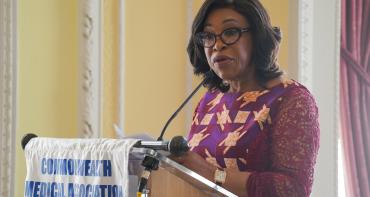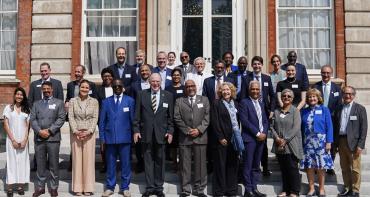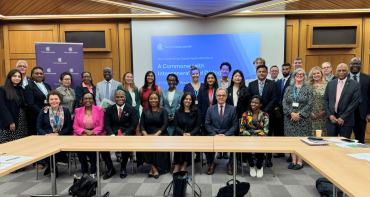As we mark World Malaria Day today, urgent action must be taken to accelerate progress towards our elimination goals.
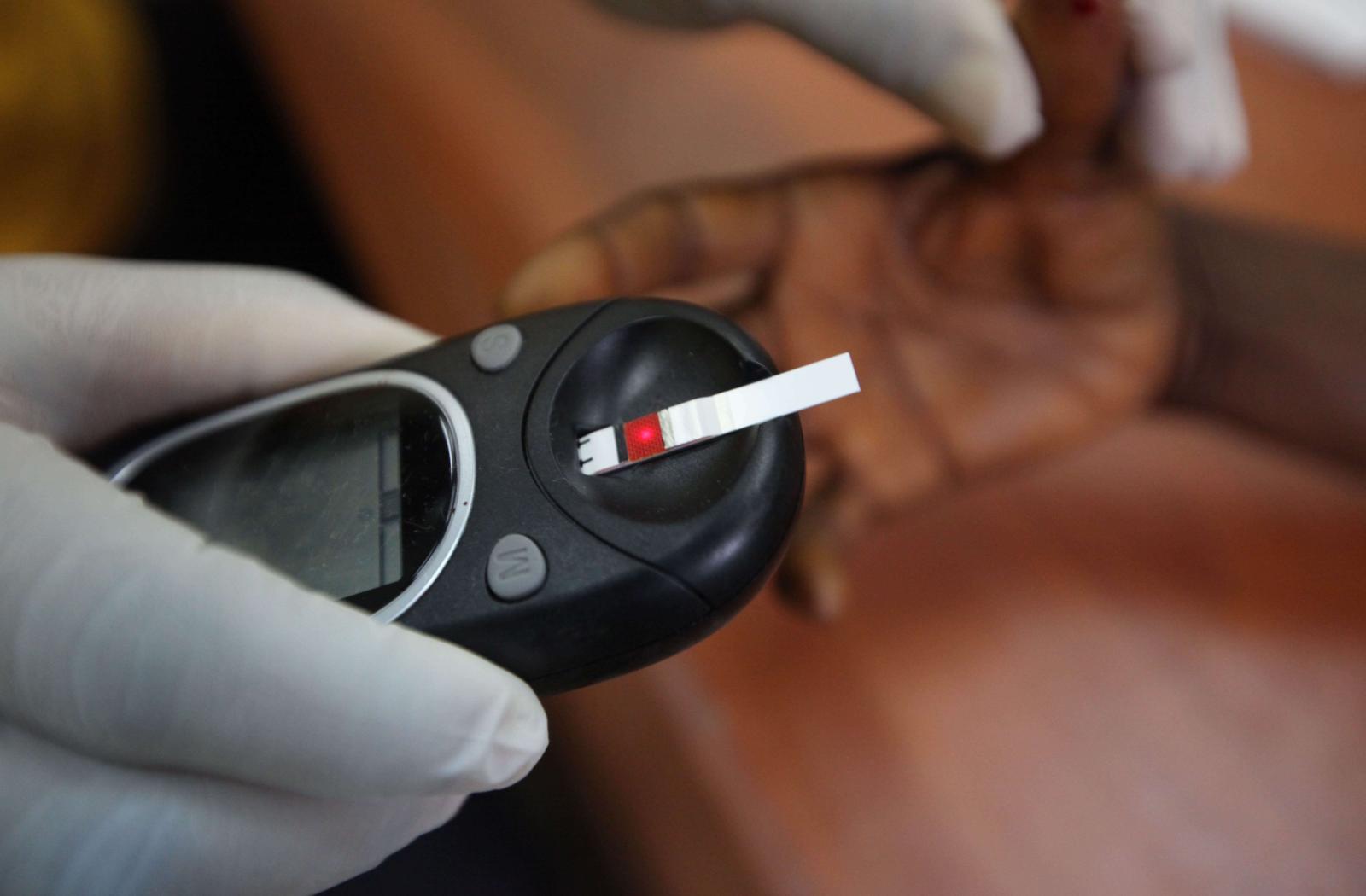
Blog by Dr Janneth Mghamba, Health Advisor, Health Section, Social Policy Development, Economic, Youth and Sustainable Development - Commonwealth Secretariat
Although malaria is an entirely preventable and treatable disease, it continues to have a devastating and disproportionate impact on the health and livelihoods of people around the Commonwealth.
In fact, whilst the Commonwealth is home to nearly one-third of the world’s population, it accounts for more than half of all malaria cases and deaths recorded each year. Findings from the 2021 Commonwealth Malaria Report show that 25 Commonwealth countries remain malaria-endemic, 14 of which have a high burden (more than 50 cases per 1000). In these countries, over 269,000 children lost their lives to malaria in 2020.
For a disease that is both preventable and treatable to continue to take the lives of over 600,000 people a year globally is a fact that is difficult to reconcile with.
Commonwealth Heads of Government sought to address the Commonwealth’s high malaria burden with a landmark commitment in 2018 to halve malaria by 2023. But stagnating funding and the impact of the COVID-19 pandemic have threatened this commitment, with disruptions to malaria services causing an increase in incidence and mortality rates in many malaria-endemic countries.
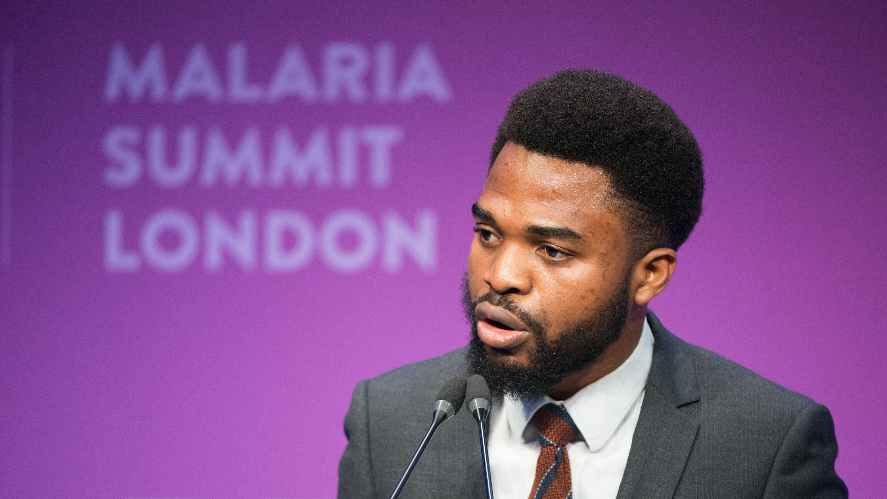
Today, as we observe World Malaria Day, we are reminded that whilst significant strides have been made towards eliminating malaria by 2030, our work is far from over. More must be done to ensure that malaria prevention, diagnosis, and treatment services are adequately provisioned.
It is important to note that investment in malaria programmes is the foundation for better and more widespread outbreak detection and rapid response to address not just malaria, but other communicable diseases as well. The replenishment of the Global Fund to Fight AIDS, Tuberculosis and Malaria (Global Fund) this year will therefore serve as an opportunity to assist in the acceleration of targets, help strengthen overall health systems, and our collective action toward COVID-19 recovery.
United against malaria
And the most effective way for us to tackle this and other challenges we face is by working with governments, multilateral institutions, non-governmental organisations and development partners. To that end, the Commonwealth is pleased to work with a group of technical malaria experts comprised of the African Leaders Malaria Alliance, the Asia Pacific Leaders Malaria Alliance, Malaria No More UK, the RBM Partnership to End Malaria and the World Health Organization. Since the 2018 Commonwealth commitment, our partners have supported the Commonwealth family through the development of innovative tracking tools such as the Commonwealth Malaria Tracker, which has enabled us to better monitor progress towards our malaria commitments and elimination. Our continued collaboration, together with other partners, on the annual Commonwealth Malaria Report, provides a deeper understanding of the trends in malaria control and elimination across the Commonwealth, as well as case studies on national and regional efforts.
Our engagement on malaria, however, must go beyond discussions. And young people play a key role in community awareness. The Commonwealth Secretariat is proud to support the Zero Malaria Starts With Me: Draw the Line Campaign which seeks to enable young people to make their voices heard and support their efforts to be the generation to end malaria. The Secretariat is also pleased to work closely with the Commonwealth Youth Health Network (CYHN), which brings together the voices of young people across the Commonwealth on global health issues. Following the 2018 Commonwealth Heads of Government Meeting (CHOGM), CYHN members have continued to advocate for strengthening malaria prevention and treatment services.

As the theme for this year’s World Malaria Day centres on harnessing innovation to reduce the malaria disease burden and save lives, we must also recognise the achievements that have been made in the last year to accelerate elimination efforts.
RTS,S, the first effective malaria vaccine, was recommended by the World Health Organization in October 2021 and has the potential to save thousands of children’s lives each year. This, coupled with innovations in prevention and delivery, such as the new Insecticide Treated Nets currently being trialled, engaging community health workers to protect pregnant women, and developing social distanced methods to sustain malaria services, are providing life-saving interventions globally.
Here at the Secretariat we continue to convene member countries to share challenges, priorities, and strategies through the COVID-19 Technical Working Group on Sustaining Health Gains in order to learn lessons from the COVID-19 pandemic.
At the bi-annual Commonwealth Heads of Government Meeting (CHOGM) in Kigali in June this year, and its side event, the Kigali Summit on NTDs and Malaria, Commonwealth leaders must seize this opportunity to raise awareness and increase investment in malaria services, and ensure progress on malaria targets are accelerated.
Through these high-level discussions, we must advocate for the expansion of investment into research and innovation, so that new drugs and diagnostics can be developed. We must also ensure equity of access to malaria services so that everyone, particularly those more vulnerable and marginalised, can receive adequate and affordable healthcare. Most importantly, we must recognise that elimination can only be achieved through a multi-sectoral and multidisciplinary lens, including a One-Health approach so that we can work together to tackle malaria.
With more than 90% of Commonwealth citizens living in a malaria-affected country, strong and collective action is required. As we move closer to CHOGM, we are well-positioned to reaffirm our Commonwealth commitments to malaria. And if we seize this opportunity and act with urgency, our vision of a Commonwealth free from malaria will be realised.
Media contact
- Angela Kolongo Communications Officer, Communications Division, Commonwealth Secretariat
- E-mail | +44 7587 881503

